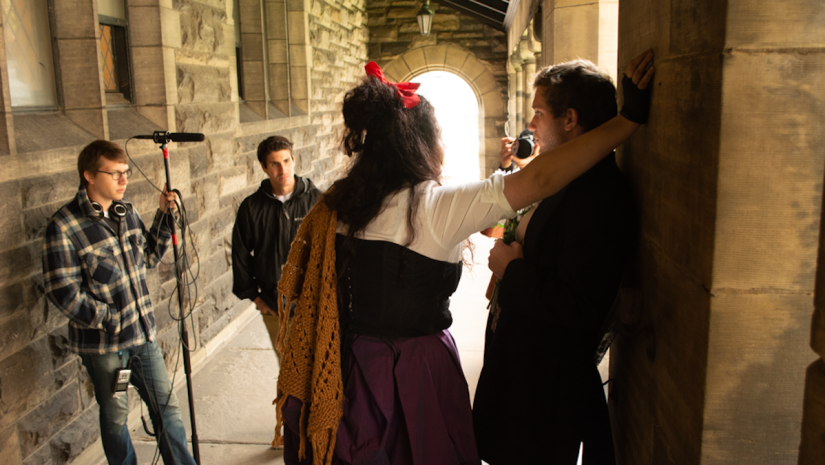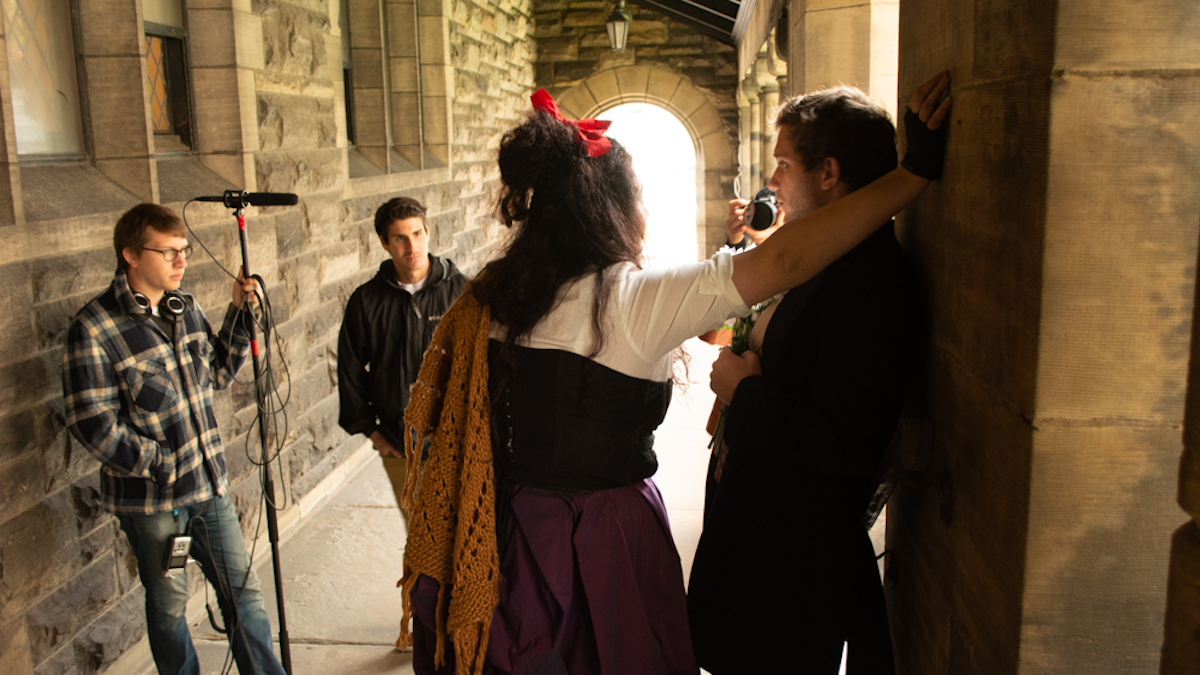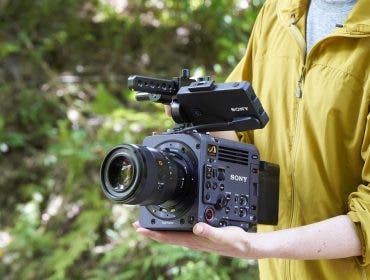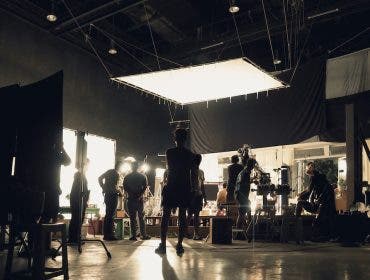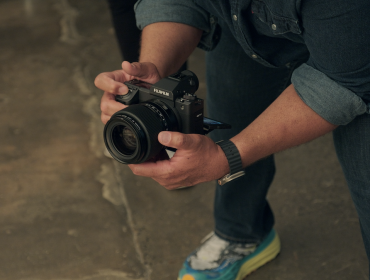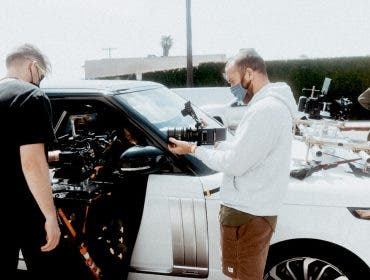When fictional medical student James Rigby knocks on the door of peculiar town coroner Oliver Cross, he has no idea of the mystery, adventure, and hilarity in store. The same could be said for the writer and director of this streaming series, The Coroner’s Assistant.
Angeline Walsh, an indie filmmaker, writer, and director from Cleveland, Ohio, penned this Victorian London narrative straight out of her film studies program. She had no idea just where it could lead—or that the show would end up nominated for two The Hollywood Critics Association’s 2023 TV awards, right alongside household names like “The Bear” and “Only Murders in the Building.” It’s the only indie series to be nominated this year.
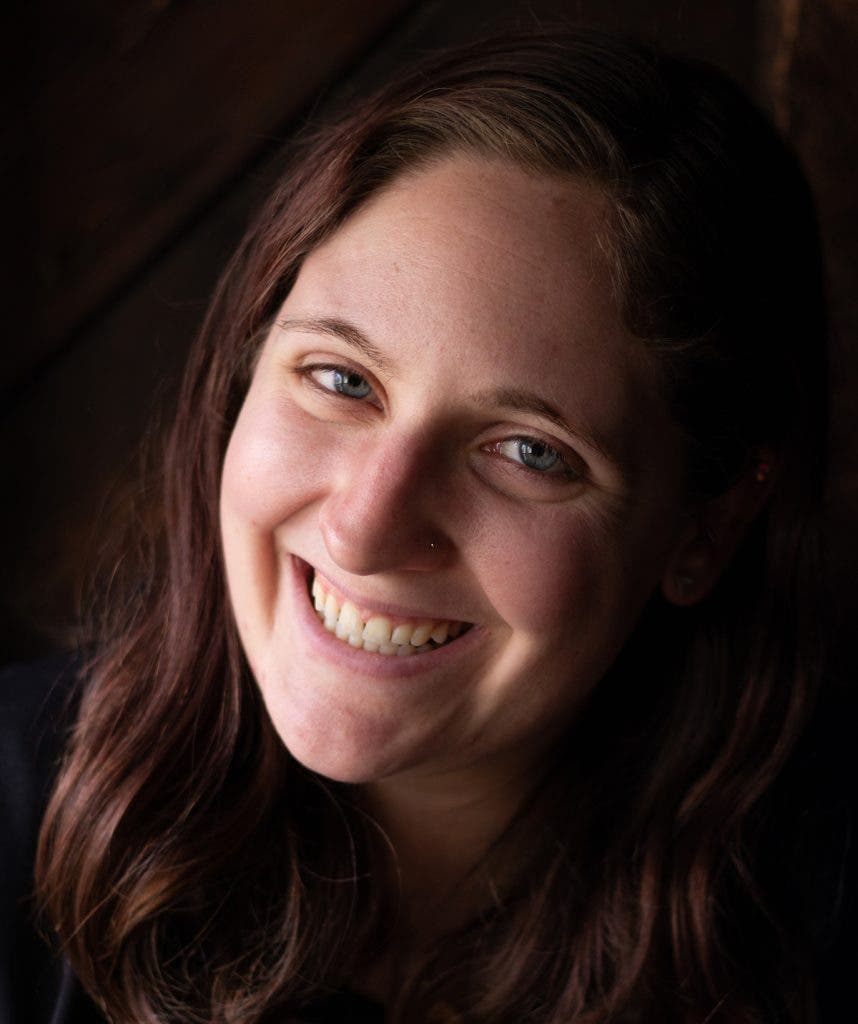
“When I saw my name in the Best Writing in a Streaming Comedy Series — next to all these writers I know and respect — it was so humbling,” she said.
It was also proof that she was on the right track. Entertainment, as we know it, is changing rapidly—something the Hollywood writer’s strike makes clear. Walsh predicts the future of film will include a lot more independents, like her.
“Traditional TV as we know it is dead,” she said. “That’s something a lot of people have known for a while. Cable primetime TV is not really a thing anymore, and that’s hard for people who’ve worked in the industry for a long time to accept. The good thing is, it evolves into something else, into something different. We have more options.”
Walsh introduced “The Coroner’s Assistant,” a four-part streaming series, via YouTube in 2023. The project took half a decade of work with a full set and female-led Ohio-based team. This includes Costume Designer Aimee Morgan (who’s also up for The Hollywood Critics Association’s 2023 TV awards for Best Period Costumes) to Director of Photography Dagna Griffin and Executive Producer Giorgiana Lascu.
I sat down with Walsh to learn how she got started as an indie filmmaker, how she took her series from idea to completion, and what she learned about directing—and the industry—along the way.
I was always writing stories. I would write little plays and force my brother and cousins to perform.
From Actor to Director
Growing up, Walsh always felt called to the world of filmmaking—first as a writer, then as an actor.
“I was always writing stories,” she said. “I would write little plays and force my brother and cousins to perform.”
Eventually, she decided acting was her best bet. She snagged the female lead for her grade school’s play. Then, she had a eureka moment. “After the auditions were over, my teachers were like, ‘all right, now we get to choose the director,’” she recalls. “The director is the person who puts all the creative things together and sees the big picture—I didn’t know that was a thing. I got so jealous.”
From that point on, she dreamed of a life spent writing and directing. Her time studying film via at Cuyahoga Community College in Ohio only solidified this, as did the early years working on her first films, like A Murder Party, which was the impetus to “The Coroner’s Assistant.” She wrote the former when she was 17 years old and began working on “The Coroner’s Assistant” in her early 20s.
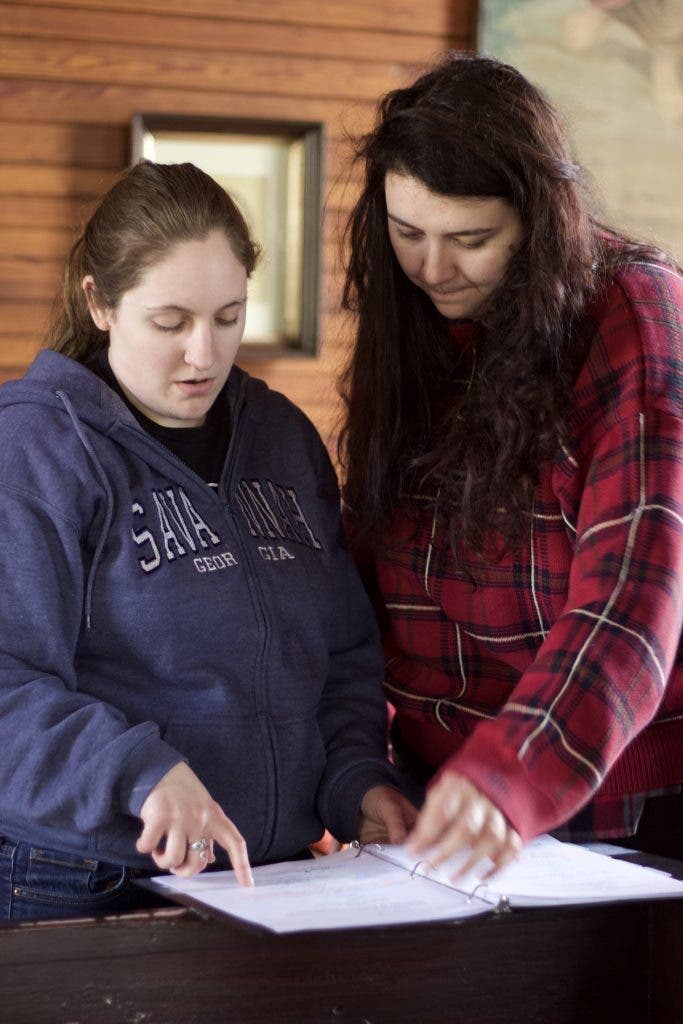
Writing “The Coroner’s Assistant”
The idea for “The Coroner’s Assistant” came from a character in “A Murder Party.”
“One of the leads in the movie was a character that didn’t have a name in the script. He was just the coroner’s assistant,” she said. He was played by Cedric Gegel, an actor from Columbus, Ohio.
“I really liked that character, and I wanted to do more with him, so I was thinking, ‘What if I made a backstory about the character?’” she said.
Like many writers, her path from concept to script wasn’t straightforward. “The way I write is very chaotic,” she said. “I don’t outline. I just start writing. For this, I started writing the very first scene in episode one and realized: this is not a short film. All these scenarios were coming to me and I knew it needed to be episodic.”
The idea spiraled. Walsh ended up hiring a crew—paid for both through crowdfunding and her own coffee shop job—and spent over five years fitting all the pieces together. Much of that was location scouting and back-end preparation. They began filming in April 2018 and finished in early 2023.
“It took a long time, but that’s what happens when you’re on a shoestring budget,” she said.
Opting for the Episodic Format
In Walsh’s mind, “The Coroner’s Assistant” was always episodic in nature. She stuck to her guns when anyone told her differently.
“We had a distributor who was interested in working with us but said, ‘There isn’t enough episodes for us to pitch it to a streaming service as a series, but you could just mash it all together and we could pitch it as a movie,’” Walsh explained. “To me, that just didn’t feel right.”
Instead, she followed her vision with the four-part episodic. “We made it unconventionally and didn’t follow all the [air quote] rules,” she said. Instead, she and the crew decided to stream it on YouTube.
For her team, YouTube made sense, especially because there are limited options for scripted series distribution. YouTube is public, it’s free, and anyone can access it.
“To me, that was the best way to stick it to “the man.” I’m not going to change my work just to fit some outdated model that’s crumbling,” Walsh said.
“If my work is going to influence people’s lives or bring them joy, that’s what matters.”
A Bright Indie-Film Future?
Much of the entertainment industry is in flux. Although, Walsh explained that, in her opinion, it’s a good time to be an indie filmmaker.
“More and more, indie film is becoming ironically mainstream. Its reclaiming film as a highly collaborative process where everyone on set has a role that’s important,” she said. “In early film, when people were making movies, it was all experimental. It was all independent. There were no set rules— pretty much everyone was a director.”
That’s how she likes her set to flow, too.
“One of the things that makes someone a good director is being able to delegate properly. You should know your limits and recognize the strengths of people around you—and trust them,” she said. “For example, my cinematographer knows what she’s doing. When she films something in a way we haven’t discussed, I trust her. And when I look at the image later, I know she’s right.”
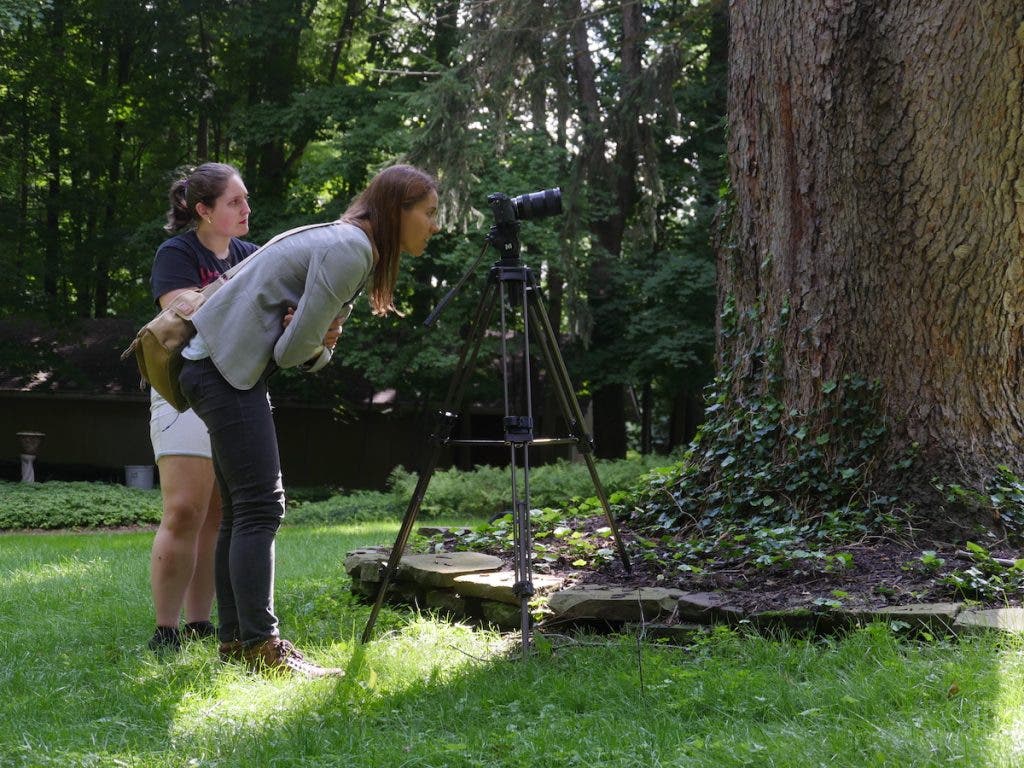
To Walsh, it’s about being a leader but also letting the creative process happen. She’s finding success by tuning into her intuition and close community, and avoiding the inevitable naysayers.
“I’m going to find people who respect me and my work and want to help me make things. I’m not going to worry about spending years trying to change my work to suit the opinions of someone who only cares about my work if it’s going to make them money,” she said. “If my work is going to influence people’s lives or bring them joy, that’s what matters.”
Blazing her own trail has helped her realize she doesn’t have to endure the obstacles associated with moving to Hollywood.
“To me, as a writer, I don’t feel the need to relocate to make my career work. I can write from anywhere, especially with online streaming, the Internet, TikTok, and YouTube,” Walsh said.
From Indie Filmmaker to Industry-Wide Recognition
While following your intuition—and shirking mainstream expectations—can be daunting, Walsh’s story proves that it can, and does, work. She applied for The Hollywood Critics Association’s TV Awards on a whim and had zero expectation she’d ever hear back. The response was exactly the kind of pat on the back she needed.
“I was so grateful that the Hollywood Critics Association saw me as someone who’s worthy of being listed,” she said. “This is the difference that can make or break someone’s career. All you need is one person to recognize your talent or your work.”
And, the lesson in all of this: go after the big project, the lofty award, or the dream film festival.
“This nomination blew my mind because someone actually cared enough to say, ‘I’m going to give this person a chance,’” Walsh said. “That means the world to me.”
